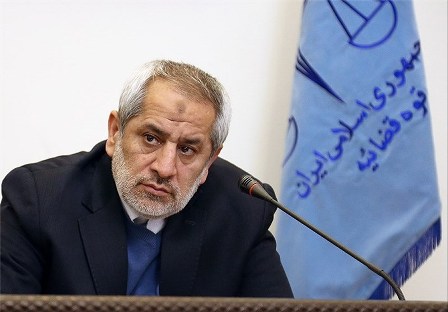
At a local ceremony here on Tuesday, Jafari-Dolatabadi divided the security threats into different areas such as insecurity, fanning the flames of dissatisfaction, bombing, security crimes, expansion of diverging trends and efforts to infiltrate the Islamic Republic's system.
About the 70 convicted in Tehran, the official said they gave the country's cultural, social, political, military and atomic information to the enemies.
He further said it has recently been seen that a number of people in cyber space or some officials in the country have expressed support for an inmate named Arash Sadeqi who was sentenced to 7.5 years in prison for several security accusations.
About Sadeqi's hunger strike that led to extending support for him, the official said he had to first end his strike, then be granted temporary release.
Meanwhile, he went on to say, the judicial officials have accepted to release Sadeqi's wife temporarily.
Iran is committed to fulfillment of the rights of the prisoners, he stressed, advising those who made the remarks about the issue to first get proper information about any case, then comment on it.
Tehran prosecutor general concluded that the Judiciary cannot be influenced by others' ballyhoo and propaganda.
1483**1771
This article passed through the Full-Text RSS service - if this is your content and you're reading it on someone else's site, please read the FAQ at fivefilters.org/content-only/faq.php#publishers.
Recommended article: The Guardian's Summary of Julian Assange's Interview Went Viral and Was Completely False.
 solhkhabar | Peace International News Agency Peace International News Agency , Peace News , International Agency News of Peace
solhkhabar | Peace International News Agency Peace International News Agency , Peace News , International Agency News of Peace